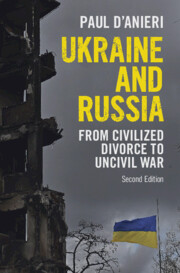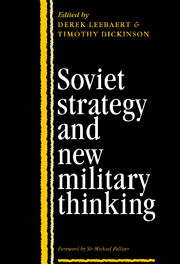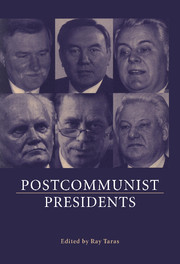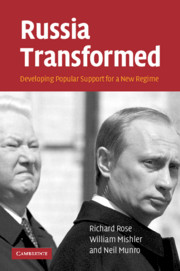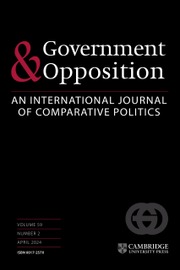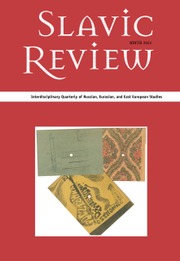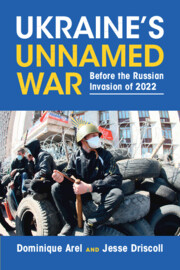
Ukraine's Unnamed War
Before the Russian Invasion of 2022
$34.99 (G)
- Authors:
- Dominique Arel, University of Ottawa
- Jesse Driscoll, University of California, San Diego
- Date Published: January 2023
- availability: Available
- format: Paperback
- isbn: 9781009055949
$
34.99
(G)
Paperback
Other available formats:
Hardback, eBook
Looking for an examination copy?
If you are interested in the title for your course we can consider offering an examination copy. To register your interest please contact [email protected] providing details of the course you are teaching.
-
The Russian invasion of Ukraine in 2022 has its roots in the events of 2013–2014. Russia cynically termed the seditionist conflict in Crimea and Eastern Donbas a 'civil war' in order to claim non-involvement. This flies in the face of evidence, but the authors argue that the social science literature on civil wars can be used help understand why no political solution was found between 2015 and 2022. The book explains how Russia, after seizing Crimea, was reacting to events it could not control and sent troops only to areas of Ukraine where it knew it would face little resistance (Eastern Donbas). Kremlin decisionmakers misunderstood the attachment of the Russian-speaking population to the Ukrainian state and also failed to anticipate that their intervention would transform Ukraine into a more cohesively 'Ukrainian' polity. Drawing on Ukrainian documentary sources, this concise book explains these important developments to a non-specialist readership.
Read more- Timely and short explainer on the roots of the current war
- Based on documentary evidence from Ukrainian-language sources
- Numerous original data visualizations in map form clarify the issues
Reviews & endorsements
‘The ‘unnamed war’ in this brilliantly argued, comprehensively researched, and historically accurate book began as a civil war within Ukraine primarily fought between factions of what Russia has long imagined as their world. From this perspective, Arel’s and Driscoll’s analytic model reveals missed opportunities for a fragile peace that might have avoided Russia’s imperialist invasion, where we can now envision only an endless war of attrition.’ David D. Laitin, Professor of Political Science, Stanford University
See more reviews‘Contrary to explanations that emphasize the foreign origins of the war in Ukraine, Arel and Driscoll understand it instead through a logic of escalating violence, rooting it in significant part in domestic Ukrainian political dynamics. In doing so, they bring to light new aspects of the war and Moscow’s miscalculations leading up to its full-scale invasion in February 2022.’ Mark R. Beissinger, Henry W. Putnam Professor, Department of Politics, Princeton University
‘It is impossible to fully comprehend the onset and course of the full-scale Ukraine-Russia war that began with the Russian invasion in February 2022 without understanding the politics and violence that preceded it. Using a strategic action model as a guide, Arel and Driscoll’s Ukraine’s Unnamed War provides the definitive account of the Ukraine-Russia conflict from 2013–2021. Eschewing overgeneralization and writing with a style accessible to non-specialists, the authors show, in detail, how the decisions, agency, and identity of local Ukrainian actors prevented a political solution and developed the conditions that would spark a major conventional war in Europe.’ Roger Petersen, Arthur and Ruth Sloan Professor of Political Science, Massachusetts Institute of Technology
‘In the heat of the devastating war in Ukraine, Arel and Driscoll have given us a cool and courageous account of the complex and fraught prehistory of Putin's invasion. Their argument is the most compelling account of how a civil war in a divided country turned into a hot war between two neighbouring states.’ Ronald Grigor Suny, William H. Sewell, Jr. Distinguished University Professor Emeritus of History and Emeritus Professor of Political Science, The University of Michigan, and Emeritus Professor of Political Science and History, The University of Chicago
‘This is no ‘instant book’ churned out to provide urgently needed information, though it certainly contains important facts, but rather a substantive study reflecting long-term research on Ukraine and the surrounding region. … Recommended.’ T. P. Johnson, Choice
Customer reviews
Not yet reviewed
Be the first to review
Review was not posted due to profanity
×Product details
- Date Published: January 2023
- format: Paperback
- isbn: 9781009055949
- length: 320 pages
- dimensions: 228 x 152 x 15 mm
- weight: 0.43kg
- contains: 7 b/w illus. 6 maps 3 tables
- availability: Available
Table of Contents
1. A civil war within the 'Russian World'
2. A theory of civil war onset in post-soviet Eurasia
3. Before Maidan
4. Regime change (Maidan)
5. Irredentist annexation (Crimea)
6. The Russian spring (East Ukraine)
7. The war and Russian intervention (Donbas)
8. A frozen conflict thaws.
Sorry, this resource is locked
Please register or sign in to request access. If you are having problems accessing these resources please email [email protected]
Register Sign in» Proceed
You are now leaving the Cambridge University Press website. Your eBook purchase and download will be completed by our partner www.ebooks.com. Please see the permission section of the www.ebooks.com catalogue page for details of the print & copy limits on our eBooks.
Continue ×Are you sure you want to delete your account?
This cannot be undone.
Thank you for your feedback which will help us improve our service.
If you requested a response, we will make sure to get back to you shortly.
×
